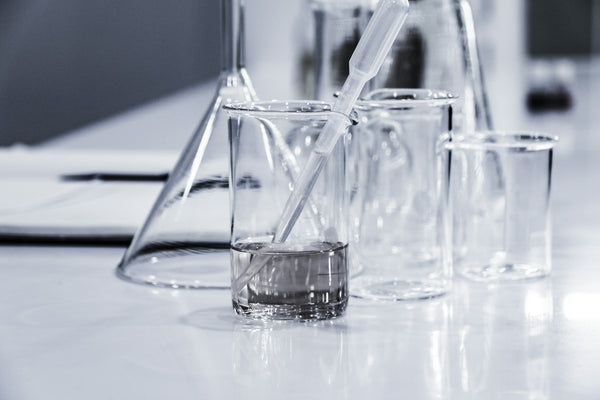Article
The Link Between CoQ10 and Premature Ovarian Insufficiency (POI)
Posted on
Primary Ovarian Insufficiency (POI), also known as Premature Ovarian Failure, is a condition that affects ovarian function in women under 40. New research into CoQ10, also known as Coenzyme Q10, has highlighted its potential role in supporting ovarian health and reducing the risk of POI.

What is CoQ10?
CoQ10 (Coenzyme Q10) is a powerful, lipid-soluble antioxidant essential for cellular energy production. Found in almost all cell membranes, it plays a crucial role in the mitochondrial respiratory chain, supporting cell growth and mitochondrial function.
CoQ10 exists in two forms, ubiquinol (the active antioxidant form) and ubiquinone (the oxidized form), both of which play essential roles in cellular energy and antioxidant protection, though ubiquinol is particularly effective in neutralising free radicals.
Why CoQ10 is Important for Ovarian Health
Studies indicate that oxidative stress, caused by an imbalance between free radicals and antioxidants, plays a significant role in Premature Ovarian Insufficiency. Since CoQ10 naturally declines with age, lower levels may compromise ovarian function. This can lead to oxidative damage within ovarian cells, potentially affecting fertility and overall reproductive health.

Study Findings: CoQ10 and POI
In a recent study, the CoQ10 levels in women with POI were compared to those in women with normal ovarian function. It found that women with POI had a lower ratio of CoQ10 to total cholesterol. This indicates that reduced CoQ10 levels may increase the risk of POI, potentially due to oxidative stress factors.
The researchers suggest that CoQ10 may be a protective factor for ovarian health by reducing oxidative damage and supporting cellular energy production. For women with POI or those at risk, maintaining adequate CoQ10 levels may support healthier ovarian function.
How CoQ10 Supports Fertility and Ovarian Function
As an antioxidant, Coenzyme Q10 plays a vital role in reducing the impact of oxidative stress on ovarian cells. Healthy levels of CoQ10 may help:
- Support energy production within ovarian cells, particularly the granulosa cells and oocytes critical for fertilisation.
- Prevent premature cell aging by neutralising free radicals.
- Reduce the likelihood of oxidative stress-induced damage, which is linked to POI and other fertility-related concerns.
Ensuring Adequate CoQ10 Intake for Ovarian Health
For those concerned with ovarian health and primary ovarian insufficiency, there are several ways to maintain healthy CoQ10 levels:
- Consume CoQ10-rich foods such as fatty fish, organ meats, and whole grains.
- Consider a Coenzyme Q10 supplement to ensure adequate levels, particularly for those with dietary limitations or increased oxidative stress. We recommend Zita West Kaneka Ubiquinol CoQ10, which provides 200mg per 2 capsule daily serving (100mg per capsule).
Emerging research into Coenzyme Q10 suggests it may play a valuable role in protecting ovarian health and reducing the risk of POI. Women concerned about premature ovarian failure may benefit from adequate CoQ10 intake to support cellular health and protect against oxidative stress, an underlying factor in ovarian aging.
Always speak with a healthcare provider before starting any supplement regimen, especially if managing a specific health condition like primary ovarian insufficiency. For those looking to add CoQ10 into their supplement routine, we offer free 15 minute 1:1 product consultations with our inhouse nutrition team. To find out whether CoQ10 may be suitable for you, tap here.
Further reading
-

Kaneka Ubiquinol (CoQ10) & Fertility: What the Research Shows
Unpacking the science behind Kaneka Ubiquinol’s role in supporting reproductive health and its antioxidant benefits for both prospective mothers and... -

Debunking Five Common Fertility Myths
Fertility is a subject that often attracts myths, speculation and outdated advice. For people who are trying to conceive, this...



